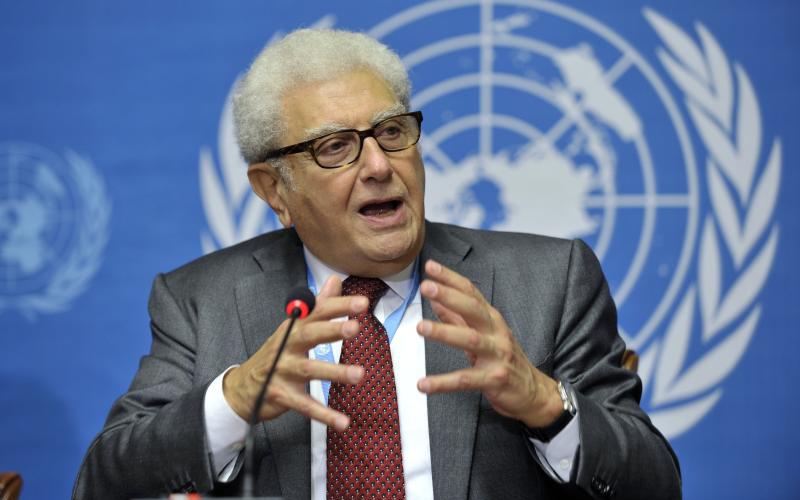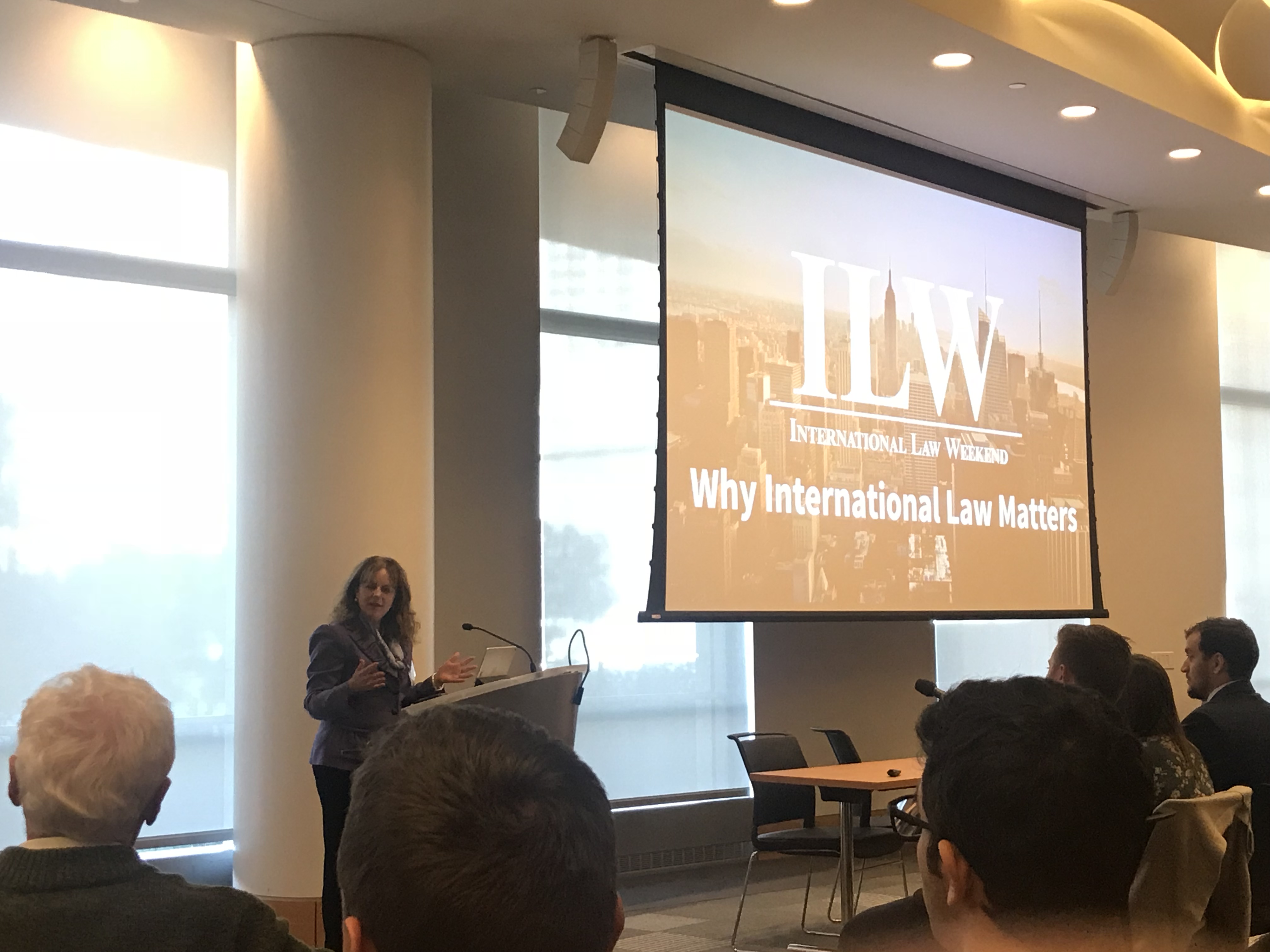By Lola Awobokun
I had the pleasure of attending International Law Weekend (ILW) 2018 in New York, October 18-20, as a student ambassador of the Harris Institute. During ILW, I was privileged to attend a panel dedicated to the 20th anniversary of the Rome Statute of the International Criminal Court and the memory of M. Cherif Bassiouni, the “Father” of International Criminal Law. The panel discussed current issues facing the Court, its challenges and its opportunities for the future.
The Rome Statute at 20 panel was moderated by the Harris Institute’s Director, Leila Sadat, who is now the current President of the American Branch of the International Law Association (ABILA). Panelists included current ICC Judge, Her Excellency Kim Prost, Director of Vanderbilt-in-Venice at Vanderbilt Law School Michael Newton, Stanford Law School Professor Beth Van Schaack, and Elizabeth Evenson from Human Rights Watch.

M. Cherif Bassiouni
Cherif Bassiouni
The International Criminal Court would not exist today without the efforts of Cherif Bassiouni. An Egyptian Native, Bassiouni was an Emeritus Professor of Law at DePaul University where he taught from 1964-2009. Cherif was persistent about the establishment of the International Criminal Court throughout his whole career, and the Court was something that many did not believe would ever be established in their lifetime.
The ICC’s Biggest Successes
The establishment and existence of the Court seems like a miracle in itself. The Court is not perfect, but the Rome Statute is an amazing accomplishment because it has facilitated international issues being tried by national courts and has transformed the carrying out of justice. The Court also ensures accountability and is aiding in the advancement of international criminal law — especially on issues that deal with non-State actors, child soldiers, and sexual violence.
The ICC’s Biggest Challenges
One of the Court’s biggest challenges is state cooperation or the lack of it which affects its evidence gathering process amongst other areas. For example, out of 14 of the Court’s 15 outstanding arrest warrants, there has been no cooperation from States. This issue is compounded by the fact that the Court does not have a police force. For the Court to be effective, state parties have to take equal responsibility. The Court is also struggling with universality. The Rome Statute has 123 State Parties which is still less than two-thirds of the world’s States.
Another challenge is the politicization of the Court and its investigations. For example, many African states and others have criticized the Court for targeting African leaders unfairly. As a result, some states like Burundi have withdrawn from the Rome Statute and the Court. Another example is the Court’s internal struggle with the UN Security Council. Although the Court is not an organ of the UN, the Court does have an agreement with and relationship to the United Nations. The UN Security Council, acting under Chapter VII of the UN Charter, can refer cases to the Court when it believes crimes have or are being committed that threaten world peace and security. However, Security Council States that are not parties to the Rome Statute (the United States, Russia, and China) hold the power to veto proposed cases; Russia and China have vetoed at least six draft resolutions that would have referred the Syrian crisis to the Court.

Professor Sadat at ILW 2018
Amendments to the Rome Statute
A possible amendment to the Statute is statutory protection which is needed for the victims of these crimes and for witness protection. There have been suggestions to amend the Court’s internal procedures. For example, the distinctions and responsibilities between its chambers — Pre-Trial, Trial, and Appeals — are conflated and complicated. Amendments that would improve the practice by Court officials and States could improve State cooperation.
However, one panelist argued that there could be no amendments to the Statute because it is very encompassing and broad. Also, there would be difficulties in negotiations because State Parties would have to agree to amendments.
Trump Administration and the Future of the Court
The United States has been critical of the Rome Statute and the ICC since its inception, but this already contentious relationship recently took a nosedive. US National Security Advisor, John Bolton, launched fresh attacks on the Court in September 2018. He questioned the legitimacy of the Court, pushed for sanctions, and threatened to arrest Court officials if the court “formally proceeded with opening an investigation into alleged war crimes committed by US military and intelligence staff during the war in Afghanistan.” The Court responded by saying it will continue its independent and impartial work, undeterred.

Professor Sadat with WashULaw student Lola Awobokun
Conclusion
Despite the multifaceted challenges that the ICC is facing, the need for the Court to continue its work is greater than ever. For the betterment of the world and humanity, the world needs the Court to continue its investigations and hold those most responsible for atrocious crimes accountable.
